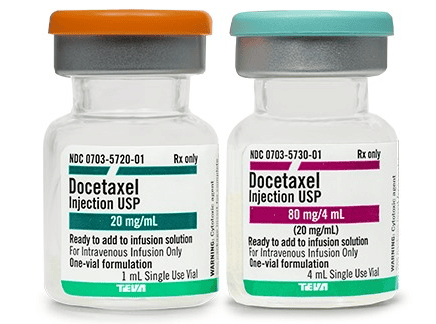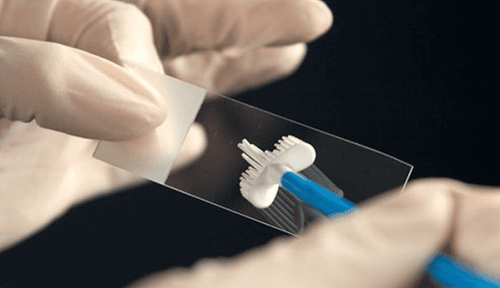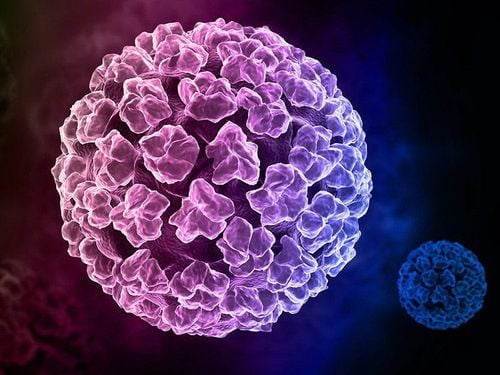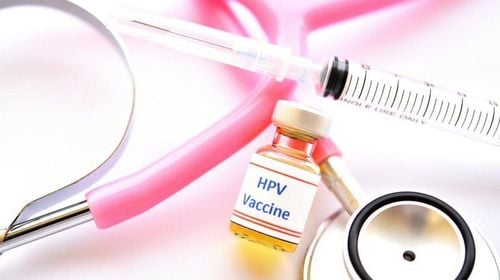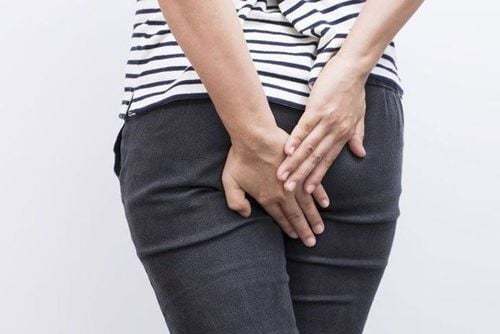This is an automatically translated article.
The article was consulted with Specialist Doctor I Tran Thanh Phuoc - Pediatrician - Pediatric Center - Vinmec Times City International General Hospital.Cervical cancer is one of the deadliest diseases in women aged 15-44 years. 95% of cervical cancer cases are related to the HPV virus with a high mortality rate. Faced with the above situation, screening for HPV virus and cervical cancer vaccination is extremely necessary for women.
Cervical cancer is what?
Human Papilloma Virus (HPV) is the main cause of cervical cancer. In Vietnam every year there are 6000 cases of breast cancer and cervical cancer with a mortality rate of 50%. Both types of cancer, if detected early, have a good chance of being completely cured. Up to now, cervical cancer vaccination is considered the most effective measure for women to actively prevent this dangerous disease.HPV virus is mainly transmitted through sexual contact: skin-to-skin contact, oral mucosa, oropharynx or contact with the penis, uterus, vagina, anus of an infected person. Kissing or touching your partner's genitals with your mouth can also spread the HPV virus. In addition, HPV is also transmitted through contact with infected objects such as shared clothes, medical instruments, biopsy staples, sex toys.... HPV can also be transmitted vertically from mother to child during pregnancy. at birth and cause multiple papillomatosis in the neonate. Currently, there is no cure for the HPV virus that causes cervical cancer. To date, vaccination is the most effective method for women to actively prevent this disease.
HPV vaccine
HPV (Human Papilloma Virus) - the main cause of cervical cancer, is a human tumor virus, transmitted through contact, sexual intercourse, from mother to child and can exist in the body. for a long time before developing the disease. There are more than 100 types of HPV, of which types 16 and 18 have the highest risk of causing cancer. There is currently no specific treatment for this disease, so the only way to reduce the incidence of this disease is to get vaccinated. The HPV vaccine is considered safe and can be highly effective in protecting women from diseases associated with HPV types 16 and 18, the two main types that cause cervical cancer. In addition to 2 strains of HPV16-18, the quadrivalent HPV vaccine (Gardasil of the US) also contains 2 strains of HPV (6 and 11) that cause most cases of genital warts. Genital warts are visible warts on the genital area of men and women. Warts are not life-threatening but can be difficult to deal with because of the potential for re-infection after treatment.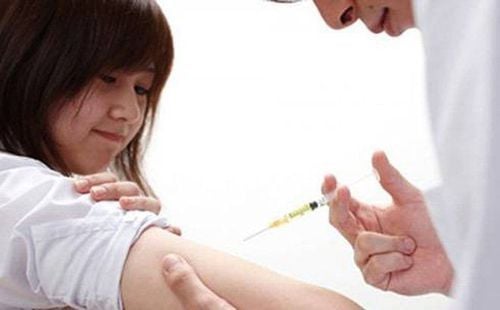
Các bé gái và phụ nữ từ 13-26 tuổi được khuyến cáo tiêm vắc xin HPV để bảo vệ sức khỏe
Age and subjects should be vaccinated against HPV
In Vietnam, the HPV vaccine as recommended by the vaccine manufacturer is indicated for women between the ages of 9 and 26, regardless of whether they have ever had sex or not. However, the age for the vaccine to be most effective is under 26 years old and women who have not been married or have not had sex. Vaccines are effective for up to 30 years.Although the HPV vaccine in Vietnam is only indicated for women, scientists believe that boys during puberty can also benefit from HPV vaccination. Now, according to the U.S. Centers for Disease Control and Prevention (CDC), expanding the HPV vaccination program for boys should be considered, after a study found that the number of men with cancer caused by HIV infection should be considered. The HPV virus will outnumber women, and HPV infection can increase the risk of oropharyngeal, oral, and tongue cancers in men, as well as cancers of the male genital tract (anus, penis).
Vaccines against HPV
Currently, in Vietnam, there are two widely used HPV vaccines:Cervarix (Belgium): The vaccine contains 2 types of cervical cancer 16-18. Vaccination for women 10-25 years old. Includes 3 doses (according to regimen 0-1-6) Gardasil (USA): The vaccine contains 2 types of cancer causing 16-18 and 2 types of other diseases 6-11 such as warts, genital warts. 9-11 year old women. Consists of 3 doses (according to regimen 0-2-6) Additional doses are not recommended.
The HPV vaccine can be given at the same time as other vaccines.
Do you need to be tested before getting the HPV vaccine?
No? The HPV vaccine does not require pre-vaccination testing. Women aged 9 - 26, not pregnant, not allergic to any component of the vaccine, not suffering from acute diseases... are eligible for this vaccine. All women should be screened before vaccination to ensure vaccination safety. The cervical cancer vaccine is still effective when given to people who have had sex, even if they have been infected with the HPV virus.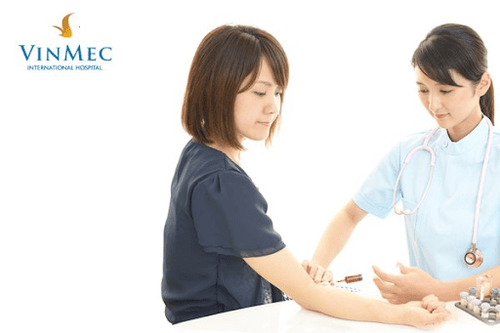
Vẫn nên tiêm vắc xin ngay cả khi đã hoạt động tình dục
Should I get the HPV vaccine if I'm sexually active?
HPV protection is best when people are vaccinated before becoming sexually active. However, it is still advisable to get vaccinated even if they are sexually active. This is because the person has not been exposed to all the viruses in the vaccine. The cervical cancer vaccine is still effective when given to people who have had sex, even if they have been infected with the HPV virus. Because in fact, HPV virus is easy to re-infect - that is, after the body clears the virus, it can still be infected with them again because the body's natural immunity is not enough to prevent re-infection. Besides, there are many different types of HPV. Even if you have been infected with one type of HPV in the past, you should still get vaccinated to protect against infection with other types of HPV.Indications and contraindications:
Indications
Being healthy, not pregnant. Within 4 weeks without any vaccination and no immunosuppressive drugs such as corticosteroids, anti-rejection drugs...; No need to do Pap test before HPV vaccination Contraindicated in the following cases:
Having serious acute diseases; Cervical cancer vaccines should not be given during pregnancy or if you plan to become pregnant within the next 6 months. If you are pregnant during the period of HPV vaccination, you need to stop the vaccination. After giving birth, only the next injections are given, but the time to complete all 3 injections must not exceed 2 years; Women with a history of yeast hypersensitivity or allergy to any ingredient in the vaccine. Side effects after vaccination:
The HPV vaccine has local side effects such as swelling, heat, redness, pain in the injection wound; Besides, there are cases where there are symptoms of rash or itching, but they will gradually decrease and disappear completely in a short time; After vaccination against HPV virus, women need to stay at the injection site for 30 minutes and continue to monitor the following days at home.
Is it necessary to have regular gynecological examination and test after HPV vaccination?
Sexually active women of any age will still need to have a Pap test after they get the vaccine. This is important because the HPV vaccine protects against most but not all cervical cancers. When married women are 21 years old or older or sexually active, they need to have annual check-ups, cytology and HPV tests to timely detect gynecological diseases as well as cancer. Cervical.However, in order to prevent adverse complications and reduce customer discomfort when using vaccination services, Vinmec International General Hospital has implemented a perfect quality vaccination service from vaccine import to the post-injection customer follow-up step. This is a closed process to ensure:
The best quality of vaccines when injecting customers. Complete and diverse vaccines are being used today. Customers experience high quality service. Customers are examined and prescribed the right type of vaccine in accordance with the customer's personal characteristics such as age, health status... Customers are continuously and closely monitored after vaccination to avoid and handle complications can occur quickly. And many other utilities such as reminding customers of vaccination schedules. Health consultation and next vaccination schedule.
Please dial HOTLINE for more information or register for an appointment HERE. Download MyVinmec app to make appointments faster and to manage your bookings easily.




